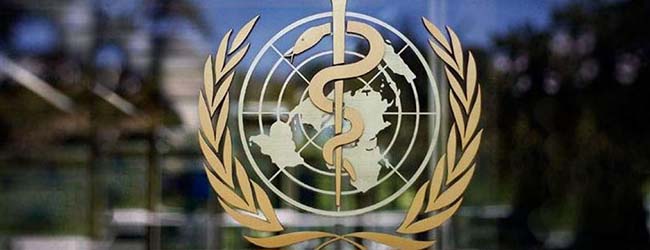


Sri Lanka has taken a decisive step towards modernising its negotiable instruments law with the enactment of the Bills of Exchange (Amendment) Act, No. 13 of 2025. The principal enactment, the Bills of Exchange Ordinance, had remained largely untouched despite seismic shifts in banking, technology, and commercial practice over the past century. This Amendment introduces critical legal and procedural updates to ensure the Ordinance remains relevant in the digital era, while also seeking to address longstanding gaps in enforcement relating to dishonoured cheques.

The Parliament of Sri Lanka has recently enacted the National Minimum Wage of Workers (Amendment) Act, No. 11 of 2025, which was certified on 23 July 2025 and is deemed effective from 1 April 2025. This amendment introduces significant revisions to the statutory wage framework applicable across all industries and services, with implications for employers and employees alike.

The Companies (Amendment) Act, No. 12 of 2025, which was certified on 04 August 2025, introduces wide-ranging reforms to the Companies Act, No. 07 of 2007. The Act, originally gazetted as a bill on 24 April 2025 and presented to Parliament on 5 June 2025, marks a significant shift in Sri Lanka’s corporate regulatory framework.

In the year 2012, “Instiglio” (a non-profit advisory firm specialized in Results-Based-Financing for- low-and-middle-income countries) became the first specialized intermediary founded to adopt Development Impact Bonds (DIBs) and Social Impact Bonds (SIBs) to the unique challenges of low and middle-income countries.

In recent times, the financial markets of the world have witnessed significant growth in Sustainable Bonds, especially in Europe and in Asia. According to data available with the International Capital Market Association (ICMA), Green Bonds accounted for the largest portion of issuances in 2023 (USD 425 billion) followed by Sustainable Bonds (USD 153.8 billion). The major portion of the Sustainable Bonds issued came from Europe (49.9%) followed by Asia (24.2%), North America (9%), and South America (4%).

As Sri Lanka embarks on a critical phase of economic recovery, the government has unveiled a set of tax reforms aimed at enhancing fiscal sustainability and alleviating economic burdens. Affirming the country’s path to economic recovery, President Anura Kumara Dissanayake announced these tax reforms during his address on 18 December 2024. He also highlighted the significant progress made in restructuring USD 12.55 billion in debt, including USD 1.7 billion of defaulted debt, with a stated goal of increasing foreign reserves to USD 15.1 billion.

The Sri Lanka Electricity Act No. 36 of 2024 marks a significant development in the nation’s journey toward modernizing its energy sector. Enacted with the aim of streamlining the regulation, generation, transmission, and distribution of electricity, this legislation addresses longstanding gaps in the industry while introducing provisions designed to foster investment, promote sustainability, and enhance energy security.

The Foreign Exchange Act, No. 12 of 2017, (the Act) serves as the principal legislation governing foreign exchange transactions in Sri Lanka. Non-compliance with the Act can result in significant penalties. Designed to promote a business-friendly environment, the Act aims to attract foreign investment while ensuring transparency and efficiency in currency transactions. It also aligns Sri Lanka’s foreign exchange practices with international standards, fostering economic growth and global integration.

Sri Lanka’s IT-BPO (business process outsourcing) sector has emerged as a significant contributor to the economy of the country transitioning from being dominated by manufacturing to one that’s focused on services. The island nation is rapidly emerging as a premier outsourcing destination for multinational companies due to several key factors.

The Colombo Port City Special Economic Zone (“Port City”) is a Special Economic Zone in Sri Lanka created to facilitate investments and doing business in Sri Lanka. In order to regulate and facilitate international commerce and investments within the Port City, the Colombo Port City Economic Commission (the “Commission”) was established under the Colombo Port City Economic Commission Act No. 11 of 2021 (“Act”). The Act enables the Commission to lease land, manage investments, issue, or grant a registration, licence, authorisation, and other approvals to engage in business, in and from the Port City and facilitate businesses and investments in terms of this Act.

The recent changes in Sri Lanka’s economy have presented a landscape rich in both challenges and opportunities for local and foreign investors. The purpose of this brief is to explain the country’s journey through the economic crisis, subsequent economic reforms, pathway to stabilization and recovery, and the evolving legal frameworks and attempts to offer a unique insight into the current state of the economy.

In the dynamic landscape of global investments, Sri Lanka has emerged as a compelling destination, offering a rich tapestry of economic opportunities across diverse sectors. As the country continues to position itself as a key player in the South Asian region, discerning investors are drawn to its potential for growth, stability, and strategic location. However, the allure of Sri Lanka's investment landscape is accompanied by a complex legal terrain that necessitates a nuanced understanding to mitigate risks and maximize returns.

The enactment of the Securities and Exchange Commission of Sri Lanka Act, No. 19 of 2021 (SEC Act), has ushered in a new era for the professional auditors of Sri Lanka, auditing market institutions, market intermediaries, and listed public companies. They are now required to act as ‘gate keepers’ and ‘whistleblowers’ to protect shareholders and the investing public from general accounting fraud.

Sweeping changes have been introduced to the Corporate Governance Rules enshrined in the Listing Rules of the Colombo Stock Exchange. This is being done in a bid to qualitatively and quantitatively improve governance of listed companies in the interest of accountability and transparency.
Effective from 01 October 2024, requirements have been introduced for listed companies to establish and maintain policies on Environmental, Social, and Governance Sustainability (ESG).

A key purpose of arbitration is to facilitate the swift resolution of disputes by presenting a viable and preferred alternative to the court process. However, over the last decade, arbitration in Sri Lanka as an Alternate Dispute Resolution (ADR) mechanism is becoming less popular among both local and foreign investors. A key reason for this debacle is that arbitrations in Sri Lanka tend to mirror the worst aspects of the litigation model, like rigid structure, wanton delays, and lack of access.

Sri Lanka has become the first South Asian country to introduce data protection legislation with the enactment of the Personal Data Protection Act, No. 19 of 2022 (“PDPA”), by the Parliament of Sri Lanka on 19 March 2022. The provisions of the PDPA will be brought into operation by way of notification issued by the Minister of Technology (i.e., the Minister assigned the subject of data protection) in the Government gazette, and this will be done 18 and 36 months from the date of enactment.

In a landmark decision, the Supreme Court of Sri Lanka recently ordered the Ceylon Electricity Board (CEB) to pay compensation of LKR 1 Million to the Vavuniya Solar Power (Private) Limited. This was following the hearing of a Fundamental Rights petition filed by the latter regarding the failure of CEB over several years to issue a “letter of intent”. The said letter confirms the intent of the state-owned electric utility to procure power from the renewable energy plant to be set up by the petitioner, and without which, the petitioner would not be able to obtain the necessary approvals, permits, and licences from the relevant regulatory authorities.

Market manipulation involves the unwarranted interference in the operation of demand and supply for securities in a stock market.
Interference in the market may be achieved where manipulators disseminate misleading or false information about an issuer or its securities or through artificial transactions intended to convey false information regarding the forces of demand and supply for the market or price of securities.

A multinational company with a global reach challenged a small Sri Lankan entrepreneur making and selling bakery items, on the basis that one of the multinational company's trademarks was being used. The action of the multinational company under the Intellectual Property Act (Colombo HC /Civil/26/2014/IP) was unsuccessful and was dismissed with cost by the Provincial High Court of the Western Province in the exercise of its commercial jurisdiction ("Commercial High Court").

The selection of an appropriate procurement method is essential for successful project development. The most suitable method can lead to increased certainty regarding time and costs and ensure that the completed works are fit for intended use. Construction in the Sri Lankan private sector primarily involves two popular methods of procurement, namely traditional construction contracts (or design bid build) and design & build contracts.

Amalgamation is the coming together of two or more companies to form a single unified entity. In simple terms, the combined businesses of two or more existing companies, including all assets and liabilities of such amalgamating companies, are subsumed or transferred by the operation of law into an existing company or a new company formed for such purpose. The shareholders of the existing undertakings thereby become the shareholders of the combined (amalgamated) company. One of the innovative fea

A shareholder is defined under Section 86(1)(a) of the Companies Act, No. 7 of 2007 ("Companies Act"), as a person whose name is recorded in the share register, as the holder of one or more shares in the relevant company. The ownership structure of a company can involve both minority and majority shareholdings. A minority interest is said to be existing where an entity/individual holds less than 50% of the voting rights in the company and a majority shareholding is created where 50% or more of such voting rights are held by an entity / individual.

Ouster clauses are statutory provisions that exclude certain actions and decisions from the jurisdiction of competent courts of law. Such clauses prevent the courts from remedying the injustices that can be caused by executive zeal and pose a great peril towards good governance and the goals of sustainable development. In fact, as O. Sambo and Abdulkadir state1 , "it seeks deny the litigant any judicial assistance in respect of the matter having bearing on sustainable development and good govern

On 11 March 2020, the Director-General of the World Health Organisation had declared the outbreak of COVID-19 as a pandemic. Governments around the world are taking several contingency measures to mitigate the resulting global health crisis, including the imposition of lockdowns and curfews to varying degrees. The effects of the pandemic have sent shockwaves throughout the world and have severely disrupted global markets, trade, and commerce.